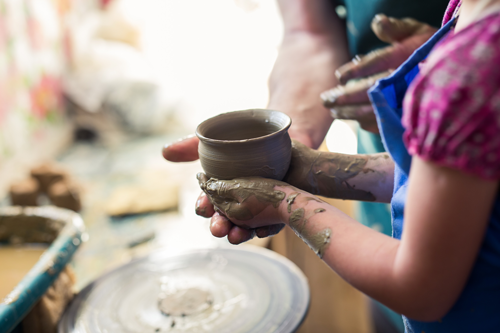




It is illegal to discriminate or offer a poorer quality service to children and young people belonging to the following groups, who are protected by legislation: race, disability, gender, sexual orientation, religion and belief.
Culture has many positive aspects, it gives a pattern and predictability to life which makes children and young people feel settled and secure. It gives individuals a sense of history and of their roots and is important in forming a positive identity. It can help all of us gain knowledge and appreciation of musical, visual and culinary arts.
Holding special events to mark cultural or religious occasions or learning new words in another language are both ways of increasing value and respect for the diverse range of backgrounds children and young people may have.
Health and social care workers demonstrate inclusive practice by working in ways that recognise, respect, value and make the most of all aspects of diversity, including cultural, religious and linguistic backgrounds. Having a deep awareness of and responding sensitively to a child or young person's diverse needs supports them in developing a sense of belonging, well-being and confidence in their identity and abilities. It helps them to achieve their potential and take their rightful place in society.
Mae'n anghyfreithlon gwahaniaethu yn erbyn plant a phobl ifanc, neu gynnig gwasanaeth o ansawdd gwaeth iddynt, os ydynt yn perthyn i'r grwpiau canlynol, a ddiogelir gan ddeddfwriaeth: hil, anabledd, rhywedd, cyfeiriadedd rhywiol, crefydd a chred.
Mae llawer o agweddau cadarnhaol ar ddiwylliant – mae'n rhoi patrwm a chynefindra i fywyd sy'n gwneud i blant a phobl ifanc deimlo'n gartrefol ac yn ddiogel. Mae'n helpu pobl i feithrin ymdeimlad o hanes a'u gwreiddiau, ac mae'n bwysig ar gyfer ffurfio hunaniaeth gadarnhaol. Gall helpu pob un ohonom i feithrin gwybodaeth am gelfyddydau cerddorol, gweledol a choginiol, a gwerthfawrogiad ohonynt.
Mae cynnal digwyddiadau arbennig i nodi achlysuron diwylliannol neu grefyddol neu ddysgu geiriau newydd mewn iaith arall yn ffyrdd o gynyddu gwerth a pharch tuag at yr amrywiaeth eang o gefndiroedd a all fod gan blant a phobl ifanc.
Mae gweithwyr iechyd a gofal cymdeithasol yn dangos arfer cynhwysol trwy weithio mewn ffyrdd sy'n cydnabod, yn parchu, yn gwerthfawrogi ac yn gwneud y gorau o bob agwedd ar amrywiaeth, gan gynnwys cefndiroedd diwylliannol, crefyddol ac ieithyddol.
Mae meddu ar ymwybyddiaeth ddofn o anghenion amrywiol plentyn neu berson ifanc ac ymateb yn sensitif iddynt yn eu cefnogi i ddatblygu teimlad o berthyn, llesiant a hyder yn eu hunaniaeth a'u galluoedd. Mae'n eu helpu i gyflawni eu potensial a chymryd eu lle haeddiannol mewn cymdeithas.